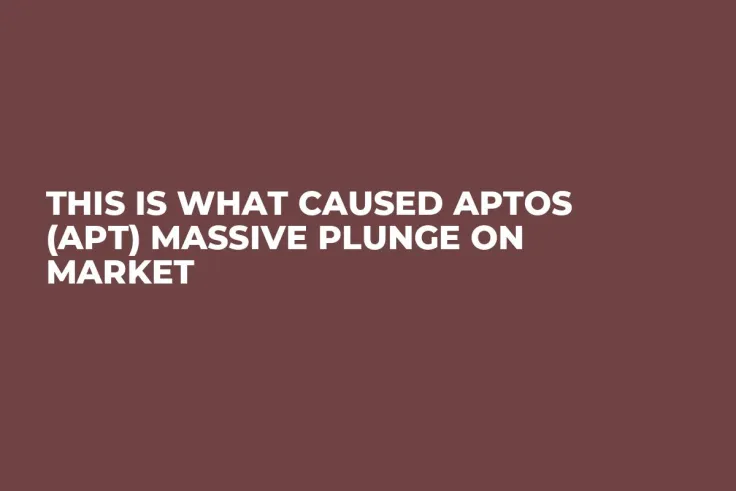
Disclaimer: The opinions expressed by our writers are their own and do not represent the views of U.Today. The financial and market information provided on U.Today is intended for informational purposes only. U.Today is not liable for any financial losses incurred while trading cryptocurrencies. Conduct your own research by contacting financial experts before making any investment decisions. We believe that all content is accurate as of the date of publication, but certain offers mentioned may no longer be available.
Aptos' plunging from around $15 to $6 in almost no time caused panic among investors, and rightfully so. According to market and on-chain data, the sell-off was caused by a single person who conducted a Sybil attack thanks to a vulnerability in the airdrop mechanism.
Reportedly, the attacker accumulated over 6.3 million APT tokens and made over $50 million in profit with the average price of $8. The severe selling pressure caused a massive drop in the market value of the APT token, which is now trading at $7.48.
🚨#APT 65% of the funds were deposited to the sybil address, accumulating over 6.3M APT Token, or over $50M in profit based on $8. This brought about severe selling pressure, causing the price of the currency to go all the way down. @WuBlockchain https://t.co/e4HBf5VTtz?from=article-links
— X-explore (@x_explore_eth) October 20, 2022
According to preliminary analysis, the chaotic airdrop was the main reason behind the unexpected spike in selling pressure. X-explore research showed that out of 16.3 million APT deposited on Binance, 40% were sent from a single entity represented by seven large Sybil addresses.
As the explorer data suggests, the aforementioned seven addresses had more than 50,000 APT on each. The owner of those wallets is most likely a single person who conducted the Sybil attack and then sold the tokens on the market.
As Binance's orderbook suggests, the attacker sold stolen funds with a single order worth approximately 180,000 APT or $2.5 million, considering the price at that time. It is not clear if the order was filled completely.
Unfortunately, the attacker could launch another wave of selling pressure on APT at almost any point, considering the amount of tokens he has in the remaining wallets. Luckily, centralized exchanges will most likely flag the aforementioned tokens and will not let the hacker realize them until APT gets listed on decentralized exchanges with proper liquidity.

 Vladislav Sopov
Vladislav Sopov Dan Burgin
Dan Burgin